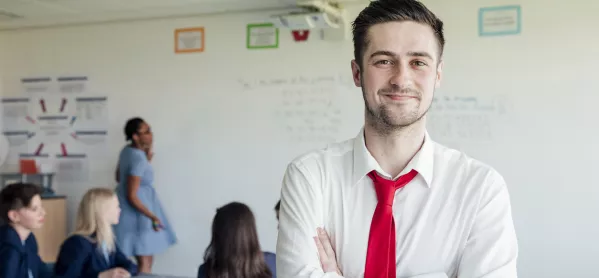- Home
- Expert teachers ‘see pupil ability as more fixed’
Expert teachers ‘see pupil ability as more fixed’

“Expert” teachers are less likely than “novices” to blame themselves for pupil underperformance - or take credit for classroom success, according to a professional development leader.
Poor pupil performance may be attributed by experienced teachers to students being “lazy”, “immature” or coming from a “difficult” family background, according to David Weston, the chief executive of professional development charity Teacher Development Trust.
Speaking as part of ResearchEd’s live webinars, Mr Weston said expert teachers were more likely than their less experienced peers to see pupils’ success or failure as “fixed” - which he saw as “problematic”.
Dylan Wiliam: ‘Immoral’ to teach ‘too full’ curriculum
Related: Teach pupils to spot fake news, says Daniel Willingham
Education research: Why don’t students like school?
Summarising research by Wang & Hall, Mr Weston said: “When you explore the thinking of expert teachers, then they gradually tend to attribute less of the success going on in the classroom, less of the problems going on in the classroom, to themselves.
“Novice teachers overwhelm themselves by taking total responsibility for all the learning going on. However, expert teachers are much more likely to say, ‘Actually, probably they didn’t do very well because, you know, they’re inherently lazy, they’re really immature or actually their family’s a difficult one.
“And as teachers develop expertise over time, they begin to make more and more attributions of failure and success to much more fixed elements - this is problematic.”
Expert teachers ‘less likely to follow a script’
Mr Weston said experts were more likely to adapt teaching activities to different classes more flexibly, and were less likely than novices to “follow a script”. They also spent more time anticipating pupils’ misconceptions.
However, as they gained experience, teachers were more likely to view some aspects of pupil performance as “fixed” - such as a student’s ability or behaviour.
‘Fixed’ ideas about pupil ability
He added that teachers were also less likely to feel responsible for poor achievement in pupils they considered to be low-ability than those they saw as having higher abilities.
If a low-ability pupil did well, Mr Weston said: “I’ll think, ‘Oh, that’s nice, maybe I did really well as a teacher, maybe they put some extra effort in - that’s great.’” Whereas if they did badly, teachers would be sympathetic but view this as unsurprising.
These ideas became “more fixed” as teachers gained experience, although he added that professional development could change this.
“We need to show expert teachers that children can do better, that some of the things they think aren’t changeable can be made changeable...And that’s a hard thing to shift because these are deep-rooted beliefs which also protect that teacher from feelings of failure,” he said.
Experienced teachers ‘can be open-minded’
However, Geoff Barton, general secretary of the Association of School and College Leaders, said the findings did not chime with his experience in the classroom.
He said: “My experience is that you get brand new teachers that startle you with their savviness and ability, and you get very experienced teachers who are very open-minded.
“It doesn’t totally accord with me, so I wonder if some of it can be explained by the culture of the school.”
He added that the teachers’ Early Career Framework was the “beginning of what has never been done” in exploring “what you need to know in the first two years, five years, ten years” of teaching.
Citing educationalist Michael Fullan’s line that “for too many teachers 20 years’ experience is the same year repeated 20 times”, Mr Barton added that some school cultures might lead to staff “sticking in their ways” while others would have a culture of innovation.
He countered that “a lot of the best teachers and the most experienced are also the most self-critical”, saying that they felt “doubly” the impact of a class underperforming as a result of their expertise.
Can different subject teachers judge one another?
Mr Weston also discussed to what extent teachers could judge other teachers’ lessons if they were in different subjects, or if they taught to students from different demographic backgrounds.
He said that teaching expertise depended on context, and that teachers of different subjects would not be able to evaluate expertise in a different curriculum area.
“If you’re asking me to teach in the school down the road, which maybe had much higher levels of deprivation and you ask me to teach computing instead of physics and ask me to use a very different style of teaching, I won’t be an expert any more,” he said.
He added: “Even an experienced teacher may be able to spot some of the behavioural issues going on, but they simply won’t be able to understand the flow of the subject.”
He said if, as a science teacher, he observed someone in English, “I might be able to see some of the interaction, but I won’t understand how you’re anticipating different subject issues...I simply won’t be able to see that. I don’t have the expertise, in that I am not seeing the classroom and what’s happening in the way you’re seeing it.”
Keep reading for just £1 per month
You've reached your limit of free articles this month. Subscribe for £1 per month for three months and get:
- Unlimited access to all Tes magazine content
- Exclusive subscriber-only stories
- Award-winning email newsletters



